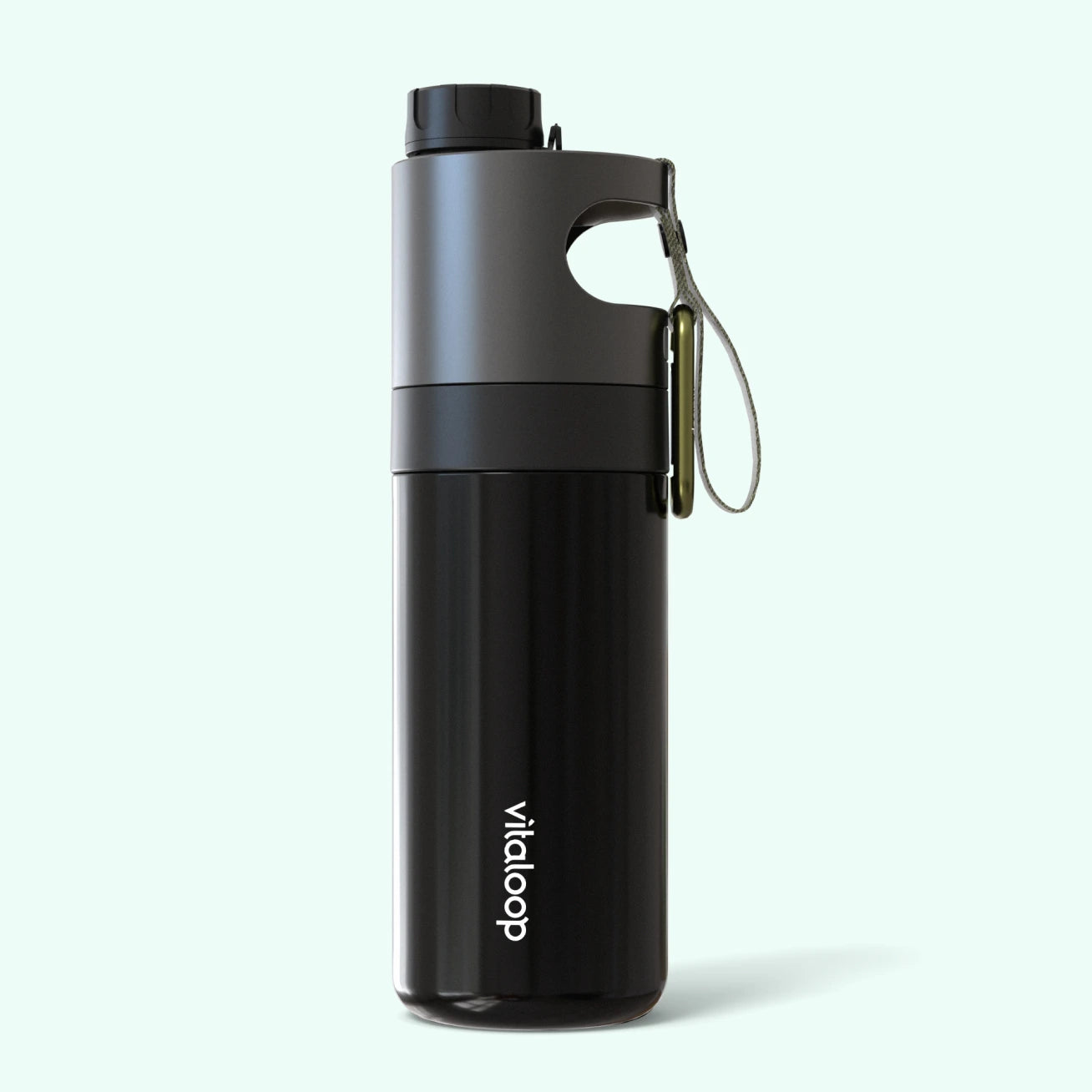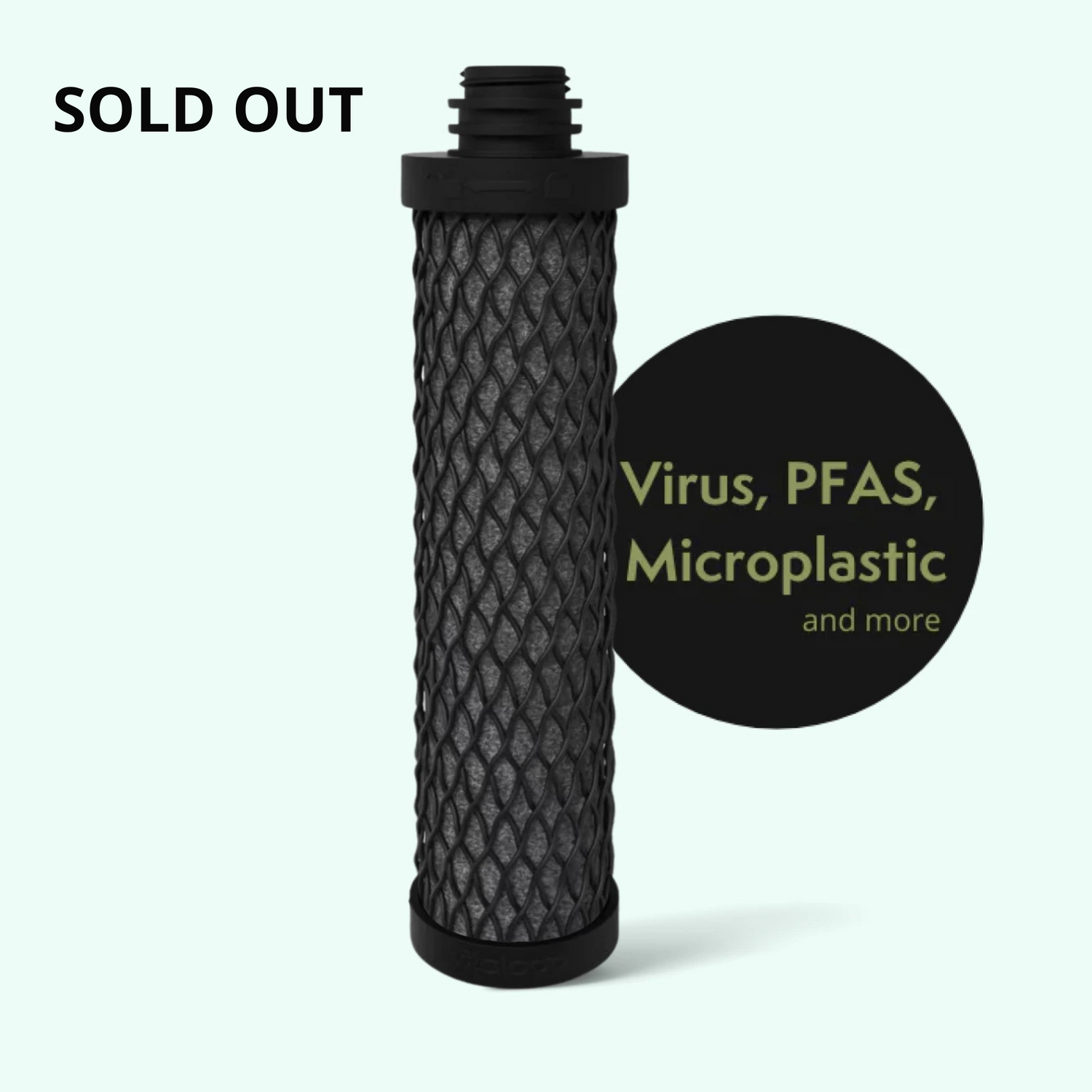My Journey Through Egypt: A Lesson in Water Safety and Exploration
For as long as I can remember, I have dreamed of visiting Egypt and experiencing its rich history. In February 2022, while Vitaloop was still in its early development stages, I finally seized the chance to explore this incredible destination. As someone who works with water filtration, the trip held special meaning for me. Over the years, I’ve grown to deeply respect places that owe their entire existence to their access to water.
In this post, I want to share how my journey through Egypt—a land shaped by the Nile and its millennia of history—reinforced the importance of clean water while traveling. By looking at the Nile's role throughout history, I hope to offer insights on why water safety is more than just a modern convenience. It’s the backbone of healthy, successful exploration.
Egypt and the Ever-Present Nile
Egypt is the only civilization in the world that has endured for thousands of years, largely thanks to the Nile River. Far more than just a water source, the Nile was the foundation of Egypt’s cultural, trade, and technological dominance. Standing on its banks and visiting sites like the Pyramids and the Valley of the Kings, I felt overwhelming gratitude for experiencing this “living history.”
Terje Tvedt, a renowned explorer, famously called the Nile the “lifeline of a civilization.” Its predictable flooding and natural resources didn’t merely sustain life—they powered agriculture, transport, and trade. Reflecting on Egypt’s past, I came away with a message: predictable water safety is essential. Just as the Nile’s dependable flooding empowered the rise of a great civilization, ensuring clean water is vital for travelers seeking to enjoy their journeys without unexpected detours.

Arriving in Egypt: A Different World
When we arrived in Cairo, we immediately noticed that we had entered a completely different world when we stepped outside the airport. Navigating the taxi system—figuring out which taxi to take and whether we were paying the correct price—was challenging. With all due respect to local culture, it was chaotic and far less organized than I was accustomed to. This first impression was further reinforced when we tried to explore the streets near our hotel. Pedestrians were not a priority, and crossing the street felt downright risky. The noise, the smells, and the bustling city were the complete opposite of the calm town of Oslo I had just left behind.
Seeing the Nile for the first time was magical. Understanding its importance to so many people throughout history—building a culture of agriculture, mastering water control, and becoming a wealthy nation through trade—was inspiring. The sight of modern boats used for tourism and merchant ships navigating this ancient river vividly reminded me of the Nile’s ongoing relevance in global trade. Witnessing this powerful connection between past and present left a lasting impression.
It was also an emotional moment when my 14-year-old son got to steer one of the boats on the Nile River near Luxor. Seeing him take the helm, even briefly, was profoundly moving. These moments reminded me of the importance of experiencing history and culture firsthand.

The people we encountered were genuinely kind, and their hospitality often came with an added layer of local tradition. For example, asking for directions to a restaurant sometimes included visiting a local perfume shop. Yes, the shop was geared toward tourists, and we bought overpriced perfume, but the experience of sipping local tea and engaging in a fascinating conversation made it worth every penny.
Water made all of this—the culture, the history, the personal connections—possible. The Nile has enabled Egypt to thrive for thousands of years, and this trip put into perspective just how crucial water is for survival, development, and human connection.
A Travel Dream with Unexpected Interruptions
Despite our excitement and meticulous planning, our Egyptian adventure took an unexpected turn when my son fell seriously ill—likely from contaminated water. We’re quite certain it was water since we ate pretty much the same food throughout our trip. It could have been ice cubes from restaurants, bottled water provided by our tour guide or hotel, or even salads rinsed with local water—all of which can potentially carry harmful bacteria.
Watching my son struggle with a stomach infection was heartbreaking and a stark reminder of how something as essential as clean water can completely derail even the best-laid plans.

Lessons Learned: Always Be Prepared
Since that trip, I’ve made it a habit to always travel with a water bottle equipped with a reliable filter. While it doesn’t mean I would drink directly from the Nile or any backwater river in a city like Cairo—regardless of the contamination claims brands might make—it is a versatile tool.
- At airports where bottled water can be shockingly expensive (and often bland), a filter saves both money and hassle.
- In hotels, filtered tap water gives me peace of mind.
- When exploring rivers or lakes in less urbanized areas, a good filter allows me to stay hydrated without buying endless plastic bottles.
I’ve even started filtering some bottled water, just in case it was stored improperly or exposed to contaminants. After all, being prepared is not just about caution—it’s about confidently diving into new experiences without worrying about the “what ifs.”
Reducing Plastic Waste While Traveling
Traveling often means going through plastic bottles like they’re going out of style: on flights, in taxis, at hotels, during tours, and so on. If you start counting them, it’s mind-boggling how quickly the number climbs. Globally, we consume over 500 billion plastic bottles each year, with many of them ending up polluting our planet.
That’s why I always bring my Vitaloop filtration bottle. For longer day trips, I pack an additional reusable bottle (like a Nalgene) as backup. If I know water refills will be available, I skip single-use bottles altogether. This way, I stay hydrated, save money, and cut down on plastic waste.
To me, a filtration bottle isn’t just about safety or convenience. It’s also about making thoughtful choices that protect the incredible places we visit—leaving them as pristine as possible for future adventurers.
Extra Tips for Water Filtration while Traveling
- Look for Bacteria and Protozoa Removal: Make sure your filtration system has a membrane or similar technology to remove common organic contaminants that cause illness.
- Don’t Forget Viruses: If you plan to drink from untreated sources in tropical regions, a filter capable of removing viruses is key.
- Handle Chemicals and Heavy Metals: An activated carbon filter helps manage chemicals like chlorine and can remove heavy metals, such as lead.
The Vitaloop Difference
-
- Vitaloop Flexguard: Suited for most travel scenarios, thanks to a combination of membrane and activated carbon filters.
- Vitaloop UrbanGuard: Great for virus removal, using electrokinetic technology for enhanced protection.
The Takeaway on traveling to Egypt

Despite the unexpected interruptions, my trip to Egypt remains a fascinating and rewarding experience. It deepened my respect for the power of water, which shapes civilizations and our everyday lives.
My advice is simple for anyone planning an adventure, especially to destinations where water quality can be uncertain: don’t take risks with your health. Invest in reliable portable water filtration to safeguard your journey and make the most of every moment.
Safe travels, and all the best from,
Arild Vikingstad
Founder of Vitaloop





